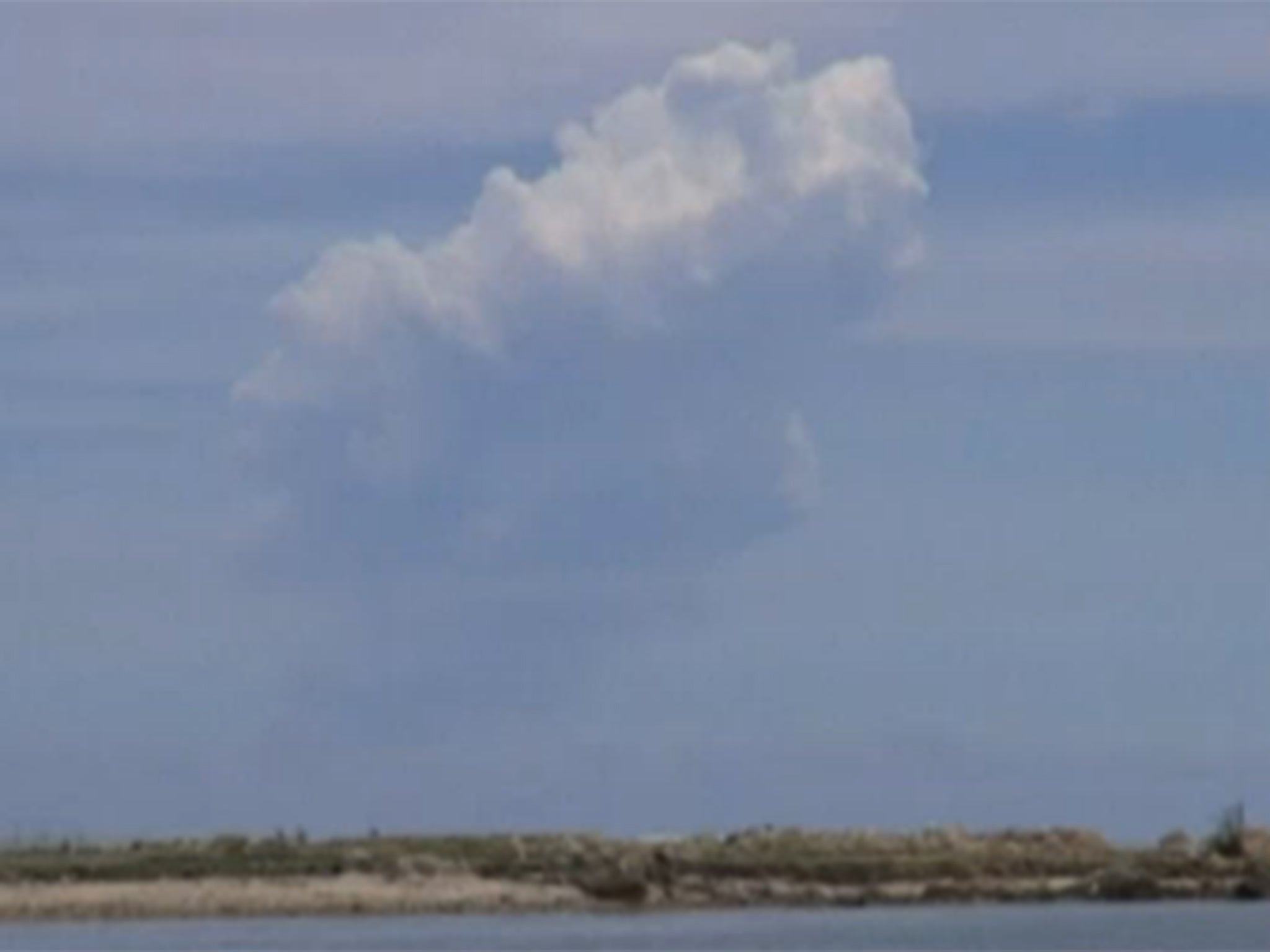Watch underwater volcano spewing ash in Tonga
The volcano first erupted back in 2009 but recently became active again

Your support helps us to tell the story
From reproductive rights to climate change to Big Tech, The Independent is on the ground when the story is developing. Whether it's investigating the financials of Elon Musk's pro-Trump PAC or producing our latest documentary, 'The A Word', which shines a light on the American women fighting for reproductive rights, we know how important it is to parse out the facts from the messaging.
At such a critical moment in US history, we need reporters on the ground. Your donation allows us to keep sending journalists to speak to both sides of the story.
The Independent is trusted by Americans across the entire political spectrum. And unlike many other quality news outlets, we choose not to lock Americans out of our reporting and analysis with paywalls. We believe quality journalism should be available to everyone, paid for by those who can afford it.
Your support makes all the difference.An underwater volcano in Tonga has erupted sending ash, gas and smoke soaring thousands of metres into the air.
The Hunga Tonga-Hunga Ha’apai submarine volcano is located north-west of Tonga’s capital and started exploding yesterday.
Plumes of smoke were sent out of the volcano and reached heights of around 4,500 meters (14,765 feet), according to the Wellington Volcanic Ash Advisory Centre.
The volcanic activity even turned surrounding waters blood red, with people on social media sharing their pictures. One user called Ana Panuve, posted on Twitter, "Driving along Hala Vuna. Saw all these people taking pics of the sea. Stopped by to join the hype!", along with a photo of the red-coloured water.
The volcano has also disrupted air travel: an Air New Zealand flight from Auckland to Nuku'alofa and several Virgin Australia flights to Tonga were cancelled due to the ash.
The volcano first erupted back in 2009 but there has been recent activity since 20 December last year.
Brad Scott, a volcanologist from the Institute of Geological & Nuclear Science in New Zealand told Radio Australia, “Traditionally the Tongan eruptions aren’t long-lived, maybe a few weeks to a month or two.” However, Scott explained that there was no way to how gauge how long the activity would last.
Scientists from New Zealand have been called to the island of Tonga to monitor and gain information on the volcano.
Join our commenting forum
Join thought-provoking conversations, follow other Independent readers and see their replies
Comments